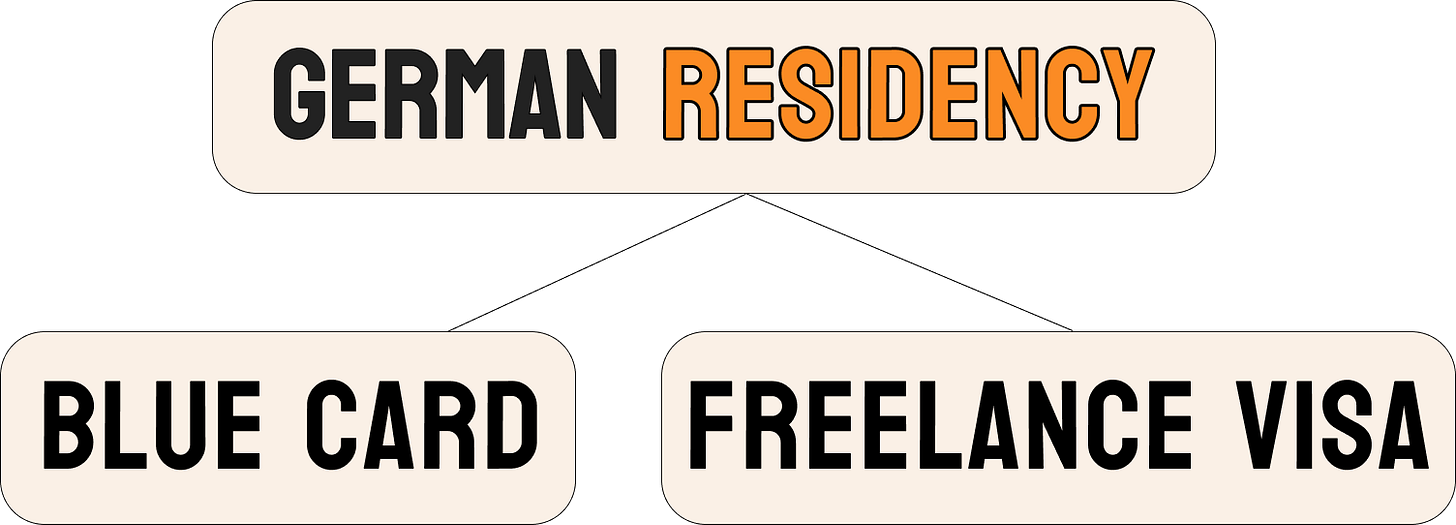How U.S. Citizens Can Move to Germany (Blue Card vs. Freelance Visa Explained)
Your Two Options For German Residency.
Most Americans researching a move to Germany get stuck on the same question.
Do I need to land a German job first, or can I go as a freelancer?
The answer depends on your situation.
Germany has two main residency routes for U.S. citizens. The EU Blue Card and the Freelance Visa. They are built for different people, and choosing the right one will save you months of wasted applications and thousands in fees.
Here’s what we’ll cover today:
The EU Blue Card (job-based residency)
The Freelance Visa (self-employment residency)
How to decide which one fits you
Common mistakes to avoid
First, the Blue Card.



